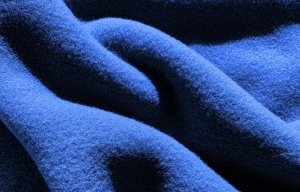
PrimaLoft introduces new biodegradable synthetic fabric
PrimaLoft has introduced PrimaLoft Bio, a synthetic insulation made from 100% recycled, biodegradable fibres.

25th October 2018
Innovation in Textiles
|
Latham, NY/Munich
PrimaLoft, a leader in advanced material technology solutions, has introduced PrimaLoft Bio, a synthetic insulation made from 100% recycled, biodegradable fibres. Developed over the last four years by PrimaLoft’s team of scientists and engineers, PrimaLoft says it achieved the breakthrough without affecting the performance characteristics of the insulation.
In accelerated test conditions simulating a landfill environment (ASTM D5511), PrimaLoft Bio fibres have reached near complete biodegradation in 394 days, a highly accelerated rate as compared to the negligible degradation observed in standard polyester, under the same conditions. This proprietary technology does not change the performance, look or feel of the garment and is expected to be available to consumers in fall 2020, the company reports.
“With PrimaLoft Bio, PrimaLoft is leading the charge by redefining what sustainability really means,” said Mike Joyce, president and CEO of PrimaLoft. “Recycling is a good start but, we are intent on providing an even better answer to the environmental issues facing our industry. As we have been making sustainable products since 2007, PrimaLoft Bio speaks to the heart and soul of who we are.”
“We looked at the global issues, including the proliferation of textile waste and microplastics, and determined how PrimaLoft could make a positive impact within our core competencies – material science and polymers. This technology, one of the most significant global technology launches in the company’s history, provides a solution at the material level, which was key for our vision.”
The idea was already conceived in 2014 by PrimaLoft’s product management team. After two years of research, it took two years to develop the process and more than a year of testing with an independent lab.

“PrimaLoft Bio has the potential to transform the outdoor and fashion/lifestyle industries’ supply chain,” said Dr Charles Lancelot, a materials technologist who worked alongside PrimaLoft during the testing process. “Over 80% of discarded textile and garment wastes were landfilled in 2014 in the US, accounting for nearly 8% of the total waste. This advanced biodegradation technology from PrimaLoft leverages progressive end-of-life material science and demands the attention of every apparel brand interested in making a smaller environmental footprint.”

PrimaLoft Bio fibres break down when exposed to landfill or ocean environment. The company has enhanced the fibres to be more attractive to the naturally-occurring microbes found in these anaerobic environments. The microbes eat away at the fibres at a faster rate, returning the insulation to nature. The biodegradation process leaves behind water, methane, carbon dioxide and biomass. The new product will only biodegrade when exposed to the microbes in landfills or ocean water, thus, the insulation remains highly durable throughout its usable life cycle in a garment.
PrimaLoft Bio expands upon PrimaLoft’s commitment to being Relentlessly Responsible, providing sustainable solutions throughout its business in order to lessen its impact on the earth. To date, PrimaLoft has saved more than 84.7 million plastic bottles from landfills and transformed them into premium insulation technologies.

By 2020, 90% of PrimaLoft says its insulation products will have at least 50% post-consumer recycled (PCR) content, without compromising performance. Earlier this year, PrimaLoft introduced its first insulations with 100% post-consumer recycled material.
Moving forward, PrimaLoft is investing to reduce its footprint through the supply chain with an emphasis on finding solutions for reducing energy, carbon emission reduction, utilising biodegradable products and incorporating natural plant-based fibres in its products.
“With premium quality, we want our consumers to be able to enjoy their garments for many years,” continued Joyce. “Yet, we know that products have a life cycle and are eventually disposed one day. PrimaLoft Bio goes hand in hand with sustainability, by providing a solution for the end of a garment’s life cycle. We are excited to be the first to solve this problem in the synthetic insulation category.”

Business intelligence for the fibre, textiles and apparel industries: technologies, innovations, markets, investments, trade policy, sourcing, strategy...
Find out more